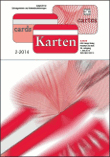Sie befinden sich hier: Home › cards › Ergänzende Informationen › Archivdaten › "Fees must be set atcommercially
viable levels"
Archivdaten
01.06.2008
Allgemein
"Fees must be set atcommercially viable levels"

Dieser Artikel ist Teil unseres Online-Abo Angebots.